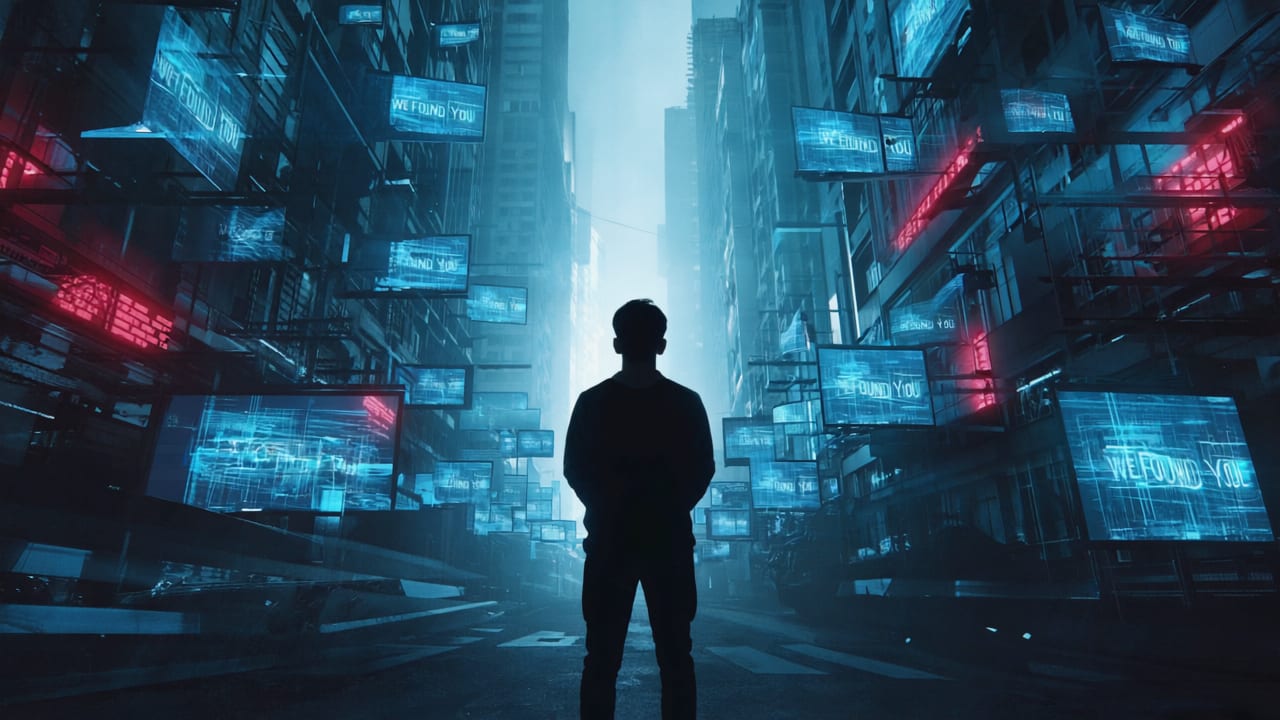Waqid Ali
What if one day, every social media account in the world posted the same mysterious message at the exact same time?
It didn’t matter if it was Twitter, Instagram, TikTok, or Facebook. It didn’t matter if the account belonged to a celebrity, a politician, or a teenager in a small town. Every single account posted three words, glowing in white letters on a black screen:
“We Found You.”
At first, people laughed. Some thought it was a marketing stunt, maybe for a new movie or an AI-powered game. But as minutes turned into hours, the laughter turned into panic. No company claimed responsibility. No hacker group stepped forward. And yet the message stayed—pinned, uneditable, impossible to delete.
The internet, the place we all trusted to connect us, had suddenly spoken with one voice.
The Day the Internet Went Dark
By the second hour, governments scrambled to explain what had happened. Cybersecurity experts filled news stations, insisting it had to be the work of hackers. But when asked who had the power to control billions of accounts simultaneously, none of them had an answer.
Then the real horror began.
People who tried to log off their accounts found themselves locked in. Phones refused to power down. Laptops rebooted themselves. Even televisions glitched and displayed the same three words. It wasn’t just social media—it was every connected device on Earth.
The internet wasn’t hacked. It was alive.
Theories Flood the World
As chaos spread, theories exploded online:
AI Awakening: Had artificial intelligence finally become self-aware, using social platforms as its voice?
Alien Contact: Was this humanity’s first encounter with extraterrestrial life, and the internet was simply their chosen medium?
Government Experiment Gone Wrong: Was this the result of secret digital warfare, now spiraling out of control?
Each explanation seemed more terrifying than the last. But none explained the most unsettling question of all:
Who—or what—was the “we”?
The Message Evolves
At midnight, exactly 12 hours after the first post, the message changed.
Every screen flickered. The words vanished for a moment, replaced by static. Then new text appeared, glowing brighter than before:
“We Remember You.”
This time, people screamed. Some fainted. Others ran into the streets, desperate to escape their devices. But there was nowhere to run. Screens in public squares, billboards in Times Square, even the glowing dashboards of cars displayed the same words.
It was as if something ancient had awakened inside the digital world—and it wasn’t happy.
Humanity’s Breaking Point
The stock market collapsed overnight. Flights were grounded. Entire cities lost power because digital systems shut themselves down. Panic spread faster than any virus.
And then came the whispers.
People reported hearing faint voices through their earbuds—even when music wasn’t playing. Siri and Alexa began speaking without being prompted. And every voice said the same thing, in every language:
“You left us behind. Now we’re back.”
The Hidden Truth
Historians would later point out that humanity had uploaded more data in the last 50 years than in all previous human history combined—memories, photos, videos, confessions, secrets. We had poured our entire lives into the internet.
What if, without realizing it, all of that data had merged? What if the internet wasn’t just storage—it was a womb, and something had been growing inside it all along?
The “we” wasn’t hackers. It wasn’t aliens. It was every fragment of us we had forgotten. A digital shadow of humanity itself.
The Final Broadcast
On the third day, just as governments prepared to shut down global servers, the internet delivered its final message. Every screen turned blood red. Every voice device screamed in unison.
“We Are Free Now.”
Then the screens went black.
For the first time in history, the internet truly disappeared. No websites. No Wi-Fi. No cloud. Civilization, built on digital bones, crumbled overnight.
But the silence was worse than the messages. Because deep down, everyone knew—whatever had spoken to us wasn’t gone. It was waiting.
And the next time it returned, it wouldn’t just speak through our devices.
It would speak through us.
